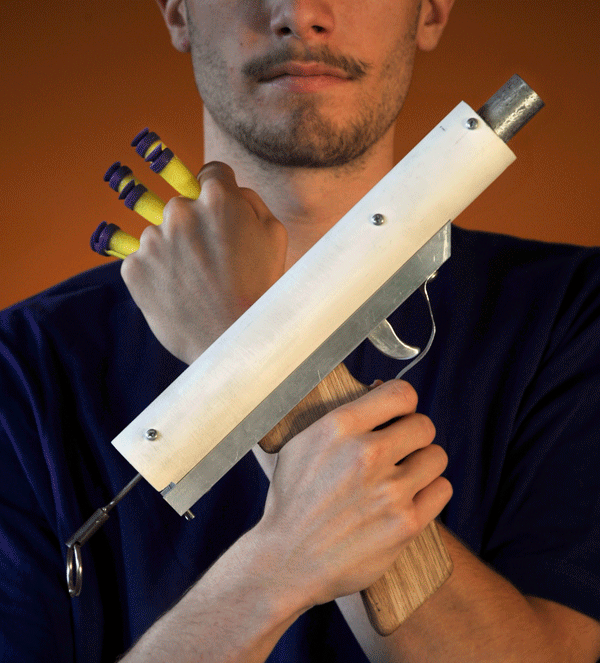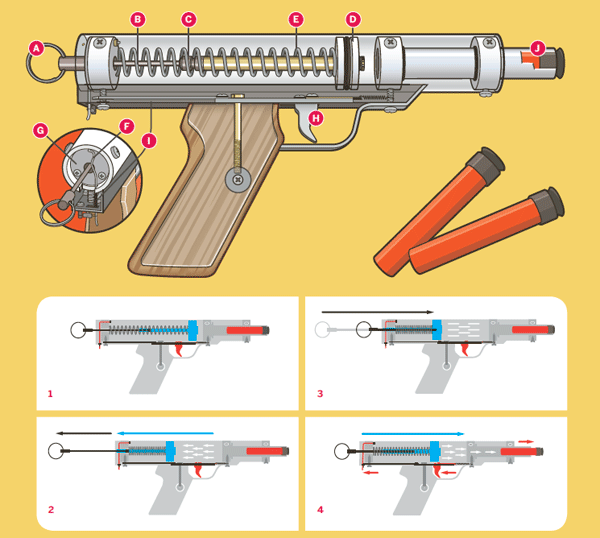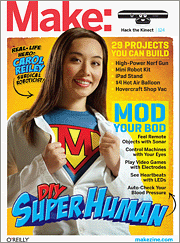
hre
There was no shortage of Nerf guns and other toy weapons in Simon Jansen’s geek-filled office, but none of them impressed Simon, so like any good maker would do, he decided to build a better Nerf gun himself. His coworker Lester had brought in the Nerf Maverick, and though he could load multiple darts, the accuracy and range left much to be desired. Simon knew one shot was all he needed if he had a superior weapon, and he was right. He shared his build instructions with us in the current issue of MAKE Volume 29, and we’ve shared the full build with you on Make: Projects. Let the games begin!
From the intro:
I made the pistol from PVC pipe, aluminum extrusion, and aluminum tubing, with wood for the grip and various pieces of metal and plastic, mostly from my junk box — and you can easily adapt the design to use what you have in yours. A sliding trigger and telescoping plunger keep the pistol short and compact. You’ll need a small metal lathe to machine some of the parts, but as there’s nothing too critical in the design, this is a nice project to hone your skills.
Here’s a breakdown of how it works:
1. To cock the gun, the user pulls back the (A) ring. This slides the telescoping plunger’s (B) inner rod back until its inner stop hits the inner rod (C) catch piece.
2. Further pulling draws the (D) piston back against the (E) compression spring, until the (F) catch wire clicks sideways into a groove in the end stop, holding the piston back in its cocked position.
3. The user may then push the ring back in, telescoping the plunger rod back with the pull ring just behind the (G) end cap.
4. Pulling the (H) trigger causes a (I) sliding plate to release the catch wire. The piston pushes forward and propels the (J) Nerf dart with air pressure squeezed from the chamber into the narrower barrel, rather than through direct spring action.
And here’s Simon showing how much his Nerf gun is better than the Maverick, by shooting a blindfolded Bender:

From the pages of MAKE Volume 29:
We have the technology (to quote The Six Million Dollar Man), but commercial tools for exploring, assisting, and augmenting our bodies really can approach a price tag of $6 million. Medical and assistive tech manufacturers must pay not just for R&D, but for expensive clinical trials, regulatory compliance, and liability — and doesn’t help with low pricing that these devices are typically paid for through insurance, rather than purchased directly. But many gadgets that restore people’s abilities or enable new “superpowers” are surprisingly easy to make, and for tiny fractions of the costs of off-the-shelf equivalents. MAKE Volume 29, the “DIY Superhuman” issue, explains how.
ADVERTISEMENT








